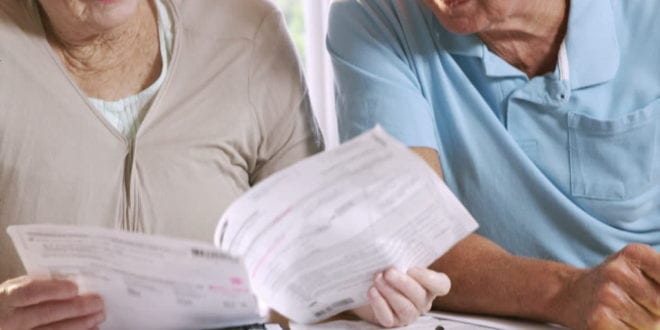It might feel like a lifetime ago, but earlier this year, the stock market hit all-time highs, and it seemed like nothing could slow it down. Then came COVID-19 pandemic and the panic which has impacted everything from Wall Street to main street.
With economies across the world effectively shutting down, those who are, or are about to, retire are feeling the pinch. Sure, they might have Social Security, and the government does an excellent job of getting those payments out on time. But what about their pensions, 401Ks, and the value of their homes?
Making matters worse, many retirees are coming to a cold realization that they might end up being underwater on their mortgage for the second time in their lifetimes. The first time was in the aftermath of the Great Recession, and the while markets across the country have mostly recovered, the question is whether they can either pay down their existing debt or sell their home before the market tanks – again.
While it is too early to accurately determine the economic impact of the COVID-19 virus in the U.S. and other countries, the early signs have been worrying. For example, the stock market has lost nearly 20 percent of its value in less than a month. Also, the unemployment numbers have surged, and for many gig economy workers have seen their revenue dry up in recent weeks.

It has never been harder to plan for retirement. For starters, seniors are living longer, more active (at least before the days of social distancing) lives. This means that they need to have the available resources to pay for 20 or even 30 years of retired life.
But where can they turn if their 401Ks have been wiped out? For many seniors, most of their net worth is tied up in their homes. On the plus side, the market has been very good over the last decade, so home values for many are the highest they’ve ever been.
The high property values create an opportunity for many seniors to protect themselves during the coming recession through something known as a reverse mortgage. Unlike traditional mortgages, these loans do not require the lender to make principal and interest payments during the loan. Instead, the loan is repaid when qualified borrowers move out of their homes.
While these loans are only for seniors, the effective freezing of a mortgage payment can have two positive impacts. First, it reduces a borrower’s monthly expenses as the money used to pay a traditional mortgage can be saved and used to cover the cost of retirement.

Second, for those borrowers with enough equity in their homes, they can use the funds left over after paying off their existing mortgage as a sort of nest egg to supplement their Social Security and dwindling 401Ks.
How is the amount of money you can access via a reverse mortgage calculated? According to reverse.mortgage, “the amount borrowers receive is determined by the HUD calculations based on the age of the borrowers (most specifically the age of the youngest borrower), the value of the home or the HUD lending limit, whichever is less and the interest rates in effect at the time.”
In plain terms, a lender will look at the age of the youngest borrower, then the value of the home or the federally mandated lending limit, and then decide the amount they can lend.
Why federally mandated? That is because the federal government guarantees most of the reverse mortgages on the market today. Most but not all, as there are private reverse mortgages on the market, but these are usually best suited for people living in homes that are well above the lending limit.

If the last recession is any indication, then the number of reverse mortgages is set to spike as cash strapped seniors turned to this to reduce the impact of the downturn on their finances. This marked a sea change in financial planning for seniors as this type of mortgage, while it has been around for a while, was often viewed as a last resort.
Besides the change in mindset among senior and financial planners, there was also a change in the rules governing these mortgages. This included allowing for TV commercials, which is something that was not possible for years.
While commercials can be used to target specific audiences, they can also educate potential borrowers about the benefits of the reverse mortgage. Reverse mortgages are not for everyone – even those who meet the age requirements. As such, you will want to check out the terms and conditions tied to any reverse mortgage you are considering.
One thing to keep in mind is that the closing costs for a reverse mortgage can be higher than a traditional refinance. As such, you want to consider everything tied to getting such a mortgage before deciding.

Another thing to consider is what will happen to your spouse if you pass before they do. Usually, your spouse would be eligible to remain in the home, and the reverse mortgage would continue as before, but as always, you want to check the fine print to make sure there are no problems down the road.
Beyond this, it is essential to note that many reverse mortgages are what are known as non-recourse loans. This means that the bank can not go after you or your estate if the sale value of the home is lower than the amount due on the reverse mortgage. Given that a recession is on the horizon, this can help to protect borrowers and their heirs.
Lastly, you might want to consider how you access the funds made available via a reverse mortgage. For some borrowers, they will opt for a lump sum payment, while others will choose to set up a line of credit that they can tap into when needed. While there are benefits to both approaches, you will want to make sure you choose the option which is best for you.
COVID-19 is not only a public health calamity; it is an economic disaster in the making. If you are a senior and you concerned about having enough money for your retirement, then you might want to consider this mortgage to survive the coming recession.
 Imagup General Magazine 2024
Imagup General Magazine 2024



